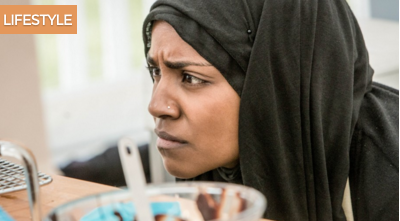
First published on the website Standard Issue, 6/10/2015
The Great British Bake Off has served up a weekly reminder that it’s not just common to mess up, says Andrea Mann, it’s also necessary.
I’ve learned a lot watching this series of The Great British Bake Off. I’ve learned the reasons why fruit might sink to the bottom of your mix. I’ve learned the difference between Swiss and French meringue. I’ve learned that Paul Hollywood can’t understand a Scot when they say the word ‘Dalek’.
But above all this, I’ve learned it’s OK to fail.
Knowing it’s acceptable to mess up sometimes is something we all know, of course – unless you’re a psychopath, in which case, Bake Off might not be your cup of tea (and slice of cake). But moment to moment, the show has been a constant, drip-feeding reminder of that well-known proverb ‘If at first you don’t succeed, bake, bake and bake again.’ Time after time, it shows us that failure is an absolutely essential part of the learning process – and, therefore, part of the human experience. And absolutely fine.
It’s partly because Bake Off provides a safe environment in which to fail. Sure, the bakers are doing it in front of TV cameras – and even more terrifyingly, in front of Paul Hollywood – but the good natured-ness of the show means every slip-up is dealt with kindly. Indeed, as a new series of The Apprentice waits in the wings, it’s a reminder of the difference between the two shows. On The Apprentice, you will be mocked for your failure – on Bake Off, you will get an empathic side-hug from Mel or Sue. “This gets harder every week, as we get to know you and love you,” said Mel in one episode shortly before the customary sending home of one baker. Such lovely, warm words… and ones as likely to pass from Alan Sugar’s lips as “I’m voting Corbyn.”
Bakes after bakes have gone wrong… as well as right. And that’s the whole point, of course: as Frank Sinatra said about love and marriage, you can’t have one without the other. In week six, Mat was named Star Baker; the following week he served up the tennis cake from Hades and was out.
In the same episode, Nadiya ran out of time and served her pastry and filling separately – and now she’s in the final. (What’s more, it’s worth noting that some ‘failures’ never come to pass – just one look at Nadiya’s adorable, worried face whenever Paul and Mary are tasting one of her creations is testament to that.) “I’ve had some real fantastic highs, I’ve had some really bad lows,” mused Paul when he went out. “That’s the nature of it: you’re not going to just come in and bake everything to perfection.”
You’re not, indeed. These failures are all part of the learning process – and these bakers only got good enough to be on The Great British Bake Off in the first place because they failed as they honed their skills. As author and educator (and hopefully baker) John Holt said: “We learn to do something by doing it. There is no other way.” And with doing something, comes failing.
Just ask Pixar – where they reframed the concept of failure. “Screw-ups are an essential part of making something good,” Toy Story 3 director Lee Unkrich once said. “That’s why our goal is to screw up as fast as possible.”
Whether we’re creating cakes or cartoons, shortcrust or scripts, striving for perfection – being scared of failing, or unforgiving of ourselves or others when we or they do, inevitably, fail – screws up our ability to create, and our ability to learn.
“A successful creative career is always built on successful creative failures,” writes Julia Cameron in The Artist’s Way. “The trick is to survive them.”
And it’s surviving our failures – learning from them, and moving past them – which sorts the soggy bottoms from the risen soufflés. As that great artisan baker, Winston Churchill, put it: “Success consists of going from failure to failure without loss of enthusiasm.”
When he left, Mat said: “I’ll get back into baking. I’m going to have to, now – people are going to want loads of cakes made for them.” While brilliant, funny Sandy assured us as she went out in week four: “I’m going to keep baking. I might even improve.” Alvin admitted that “being in the tent taught me how to be more resilient” and revealed that his father was a retired general in the army, a man who had taught him that “failure is not an option” – but who, he added, raised him “to always move forward, to move on.”
On The Great British Bake Off, failure is an option – and the contestants move on despite these failures, and move forward because of them. Week after week, task after task, failure after failure, they’ve showed up in that tent and they’ve baked. It’s admirable, inspiring – and it’s this resilience, not just their talent, which makes them so good at what they do. And who doesn’t want a slice of that?

Leave a Reply